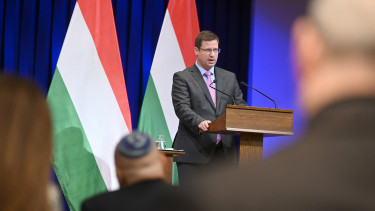Free influenza vaccine to be available in Hungary by end-October

The incidence of acute respiratory infections, including influenza-like illnesses, is monitored by the general practitioners and general paediatricians participating in the surveillance service between the 40th week of 2024 and the 20th week of 2025. They provide information on the number of patients who visit a doctor in a given week with ARI, including flu-like symptoms, by age group.
Covering 20% of Hungary's population,
the data is used as the basis for the national estimate, giving an accurate picture of the epidemiological situation and its evolution, according to the statement.
Read our first report on the situation here:
150 GPs who also participate in the surveillance service, i.e. provide clinical data, have been asked to send respiratory samples.=
one of the most important tasks in the preparation for the flu season is to organise and implement free flu vaccinations.
The flu shots have already started to be delivered and are expected to be available in GP offices and occupational health clinics across the country from the end of October.
As in last season, 949,000 doses of the 3Fluart flu vaccine are available for the at-risk group of people aged 3 years and over, to be used free of charge this season.
Based on the experience of the past decades, the spread of influenza viruses in Hungary is observed from the end of November and usually reaches epidemic levels in January, so it is recommended to get the flu vaccine before the outbreak starts, i.e. in November or December.
Vaccination against influenza is particularly recommended for people over 60 years of age, the chronically ill, health and social workers and pregnant women.
The lowest number of flu vaccinations administered in the last 14 years was in the 2023/2024 season.

According to aggregate data available at the NNGYK, a total of 594,465 people over the age of three received free flu vaccination, of whom 442,943 (74.5%) were aged 60 or over. While this percentage may seem high, and it is in fact the highest since the 2018/19 flu season, another comparison paints a gloomier picture.
The actual number of shots administered to Hungarians aged 60 and above was by far the lowest in the past six flu seasons. (We have asked the NNGYK for the time series going back 14 years and we'll update our charts as soon as we get the data.) If we look at the share of the elderly vaccinated as a percentage of their own age group, we also have the lowest figure (17.5%) of the past six years. So, it's all a matter of what you want to emphasise really.
The 'improvement' highlighted by the authority stems from the fact that while the number of 3Fluart shots administered in 2023/24 plummeted 50% from the 2020/21 peak during the covid pandemic, the number of shots administered in the 60+ age group went down by "only" 38%. The respective decreases compared to 2018/19 (i.e. a "normal" year) were 17.3% and 13.3%.

The different variants of COVID-19 are still present worldwide. In Hungary, the sub-variants of the JN.1 lineage, mainly KP.3, are currently predominant, but the recombinant XEC variant, which is spreading rapidly in Europe, is also detected.
These variants no longer cause as severe illness as the variants that spread during the pandemic, and the symptoms are virtually identical to the usual symptoms of upper respiratory tract infections.
The NNGYK launched the procurement of the Covid-19 vaccine following the publication of the WHO recommendation on the composition of the vaccine for the 2024/2025 season. The NNGYK will provide timely information on the domestic availability of the vaccine and when the population can apply for the vaccine, the release concludes.
Cover photo (for illustration purposes only): Getty Images









